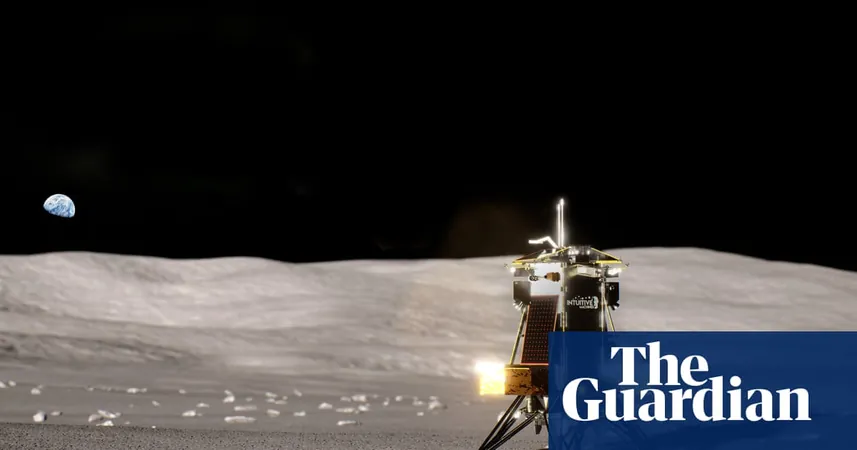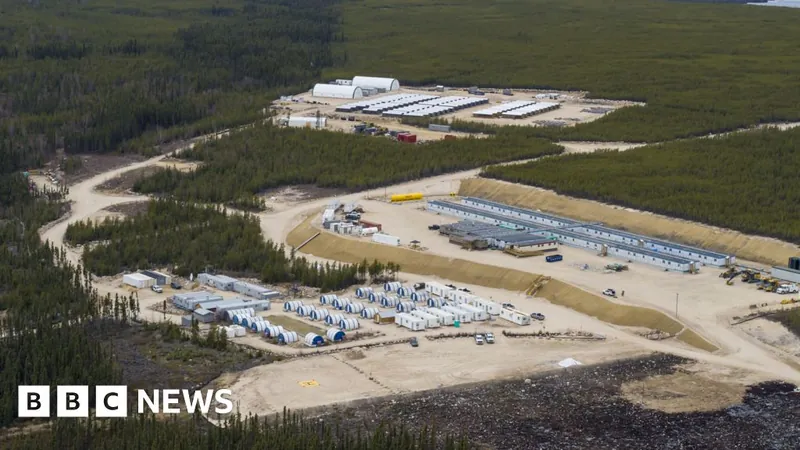
Australian-Led Moon Mission to Cultivate Plants Set to Launch in 2025!
2024-11-11
Author: Emma
Introduction
Exciting news is blooming in space exploration! An innovative project spearheaded by Australia is gearing up to grow plants on the moon, with a planned launch in 2025. This groundbreaking mission, known as the Australian Lunar Experiment Promoting Horticulture (Aleph), aims to determine whether plant life can thrive in extraterrestrial conditions.
Mission Details
The mission will be sending a specially engineered capsule filled with seeds and plants on a journey of approximately 380,000 kilometers aboard an Intuitive Machines lunar lander, marking a significant milestone as one of the first Australian-led lunar projects. Led by the visionary startup Lunaria One, the initiative is supported by a consortium of research institutions, non-profits, and industry stakeholders.
Objectives of the Mission
Lunaria One's Director, Lauren Fell, emphasized the mission's importance for future human space colonization. "While our ultimate goal is to produce something fresh and green for astronauts to consume on the moon and eventually Mars, the first test is whether these plants can survive the journey," she explained. The plants will face rigorous conditions: prolonged storage, intense vibrations during launch, and extreme lunar temperatures reaching a staggering -120°C to -130°C.
Research and Development
Fell noted, "We’re not trying to cultivate a full garden just yet, but understanding how to transport and grow life in such harsh environments is crucial as we pave the way for sustainable human presence beyond Earth." In support of this endeavor, Dr. Caitlin Byrt, a renowned bioengineering professor and plant scientist at the Australian National University, is advising on plant species capable of surviving such extreme conditions. "Our mission is to identify how photosynthetic life can endure this incredible journey and then resume growth after experiencing stasis," Dr. Byrt stated.
Significance of 'Resurrection Plants'
The research into "resurrection plants," which can withstand dehydration and extreme temperatures on Earth, might prove invaluable. These plants can survive by reducing their water content to as low as 10% and can revitalize when moisture becomes available. Byrt believes that innovations developed for space could also influence agriculture on Earth. "If we can engineer plants that thrive on the moon, the insights gained may help us in facing severe climatic events and disasters back home," she added.
Intuitive Machines' Role
Intuitive Machines recently made history by becoming the first private company to successfully land a spacecraft on the moon in 2024. Lunaria One's payload will embark on this mission during Intuitive Machines' third lunar expedition, further enhancing its pioneering legacy in space exploration.
Funding and Support
The Australian Space Agency has provided substantial backing for Aleph, granting $3.6 million to support this ambitious project. Enrico Palermo, the Agency's head, stated, "Understanding which plants can be cultivated in space—and how to grow them—will be key to advancing human space exploration and will yield valuable scientific insights for Earth."
Community Engagement
In a bid to engage the public, Lunaria One is inviting community participation in their moon mission. "We're offering various activities, engineering challenges, and plant-based experiments for people to engage with from home, making them a part of our scientific journey," Fell stated.
Conclusion
As we stand on the brink of a new era in space exploration, the Aleph mission represents a pivotal step toward sustainable interplanetary life. Will we see astronauts munching on homegrown salads on the moon by the end of this decade? Only time will tell!









 Brasil (PT)
Brasil (PT)
 Canada (EN)
Canada (EN)
 Chile (ES)
Chile (ES)
 España (ES)
España (ES)
 France (FR)
France (FR)
 Hong Kong (EN)
Hong Kong (EN)
 Italia (IT)
Italia (IT)
 日本 (JA)
日本 (JA)
 Magyarország (HU)
Magyarország (HU)
 Norge (NO)
Norge (NO)
 Polska (PL)
Polska (PL)
 Schweiz (DE)
Schweiz (DE)
 Singapore (EN)
Singapore (EN)
 Sverige (SV)
Sverige (SV)
 Suomi (FI)
Suomi (FI)
 Türkiye (TR)
Türkiye (TR)